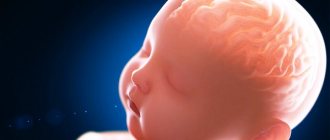Impulsivity is a character trait that is revealed in the tendency to react to a circumstance, condition, situation or mental disturbances hastily and recklessly under the influence of emotions or external events. Simply put, this is a tendency to perform uncontrollable actions generated by excessive emotional experience or due to external circumstances. In this case, an error in the analytical conclusion occurs. The individual does not evaluate the consequences of his own actions, which is why he often subsequently repents of what he has done. Impulsive personalities are characterized by emotional incontinence, irritability, and impatience. They often show irresponsibility, frivolity, and touchiness.
Causes
Impulsive individuals have no plans for the future or big life goals.
They have few friends, no favorite pastime, and have long been tired of work. They live one day at a time. Therefore, they satisfy immediate needs. They simply have nothing to compare their desires with. I don’t want to listen to other people’s opinions, since they are of no value. For example, if a person is saving for a house, then he is ready to restrain himself and refuse entertainment. And if there is no such goal, then all the funds are spent on spontaneous trips to the cinema, theater, or store. The decision-making scheme of an ordinary individual is as follows: impression – analysis of information – comparison of different options – choosing the best – action. And for an impulsive person it is as follows: impression - action.
Negative points
Alas, the most striking drawback of impulsiveness is the constant change of mood. You don’t know what to expect from a person with such a trait. Either one thing comes to his mind, then he’s already thinking about something else.
We all want consistency and comfort around us. And when such a person is found nearby, it is very difficult to deal with her. What is the comfort here? You live like on a powder keg.
ADHD or personality?
Increased activity of a child may be a manifestation of his innate temperament.
Unlike children with ADHD, a temperamental healthy child:
- After active running or other activity, he sits or lies calmly, that is, he can calm down on his own.
- He falls asleep normally, and the duration of his sleep corresponds to the age of the baby.
- He sleeps long and peacefully at night. If this is a baby, then he wakes up to be fed, but does not cry and quickly falls asleep again.
- Understands the concept of “dangerous” and experiences fear. Such a child will not climb into a dangerous place again.
- Quickly masters the concept of “no”.
- May be distracted by a story or some object.
- Rarely shows it towards mother or other child. The baby can share his toys, even if sometimes only after persuasion.
Vegetative-vascular dystonia in adolescents and children
The disorder can occur already in early childhood, which is important to take into account for parents who send their child to kindergarten or notice changes in the teenager’s behavior. The first symptoms may appear when the child goes to kindergarten or finds himself in a stressful situation
Temperature during VSD is not the only sign of a child’s disturbed condition. Such children, as a rule, are capricious, do not want to go to kindergarten, often get sick and often come into conflict with other children. They have noticeable mood swings, and they tolerate any stress, be it physical or intellectual, worse than their peers.
In adolescence, hormones come into play, the need for self-affirmation in a team, and constant comparisons of oneself with others. When these comparisons are not in your favor or conflicts regularly arise with peers and parents, the load on the nervous system increases. The psyche becomes unstable, which is manifested in girls’ behavior by tearfulness, nervousness, and rudeness towards parents and teachers. In boys, there are outbursts of anger and pronounced negativity towards everything that surrounds the teenager. And if a teenager cannot show aggression openly, another extreme occurs - panic attacks, which are no less difficult to experience.
This behavior is often attributed to hormonal surges and age-related characteristics.
But it's important to understand that hormonal changes don't have to manifest themselves this way. Moreover, they are more likely to create the ground for the development of the disorder, and the task of parents is to recognize the problem in time
If a teenager has become emotionally unstable, his behavior has changed, he blushes and turns pale easily, experiences hot flashes and sweats a lot, and has blood pressure surges, you cannot expect this to go away on its own. In this case, characteristic symptoms of a nervous system disorder appear, which can and must be stopped at the very beginning of development.
Impulsive person
Weigh the pros and cons? – no, this is not about an impulsive person. And he is also beyond the control of even a momentary reflection on his actions, and it is this factor that distinguishes an impulsive personality from a decisive one. In both cases, there is a quick and energetic reaction, but for impulsive people it is more likely to have a minus sign than a plus - just as quickly as they do, they repent of their rash and inappropriate actions.
How do you know if you are an impulsive person? There are several signs that determine the manifestations and tendency to impulsiveness:
previously unnoticed things and people in the environment begin to irritate; emerging neuroses, stress, inability to cope with one’s own excited psychological state; “starting up half a turn” is now not a problem at all; – from melancholy to unreasonable aggression; After the successful manifestation of a rash act or actions caused by impulsiveness, a person feels satisfied.
If impulsivity begins to create serious problems that a person cannot cope with on his own, it is recommended to seek specialized help. Psychologists and psychotherapists will be able to professionally assess the patient’s condition, and questionnaires and tests will specify the problem. It is imperative to fight the impulsiveness that subjugates a person: this will straighten out relationships with others and increase the quality of a person’s life. In case of serious problems and in accordance with the reasons that caused impulsivity, medical specialists will recommend an individual (according to the patient’s personal characteristics) treatment method.
Minuses
But, as practice shows, impulsive people cause many problems to society. Quick decisions often lead to poor judgment and unfair consequences.
Their mood changes quickly, the cause of which is almost impossible to find out. An impulsive person himself does not know why he is angry or upset.
An emotional individual is not inclined to be reliable due to sudden changes in decisions and mood. It is almost impossible to predict the behavior of this person, since he is guided only by his emotions, and not by a logical sequence of actions.
Symptoms and diagnosis
Let's figure out what ADHD is? “First of all, this is a disorder that includes a whole complex of symptoms that can manifest themselves with varying degrees of brightness,” says Vera Lachinova. — The so-called “four deficit theory” put forward by Canadian researcher Virginia Douglas in the 1980s is quite understandable and complete.
This is a decrease in the ability to maintain or switch voluntary attention, weakness in the inhibition of impulsive behavior, uncontrolled motor activity and an unusually strong tendency to immediate reward. ADHD should be distinguished from mental retardation, pedagogical neglect, mental deficiency, manifestations of psychopathy, asthenic syndrome, etc.”
For diagnosis, it is important that the syndrome is observed for at least 6-8 months and is not associated with concurrent diseases or difficulties in the family or school. Manifested simultaneously in several areas of the child’s life (at home, at school, in communication with peers)
According to our specialist, ADHD is diagnosed closer to adolescence. This is due to the fact that in the preschool period the child’s brain is not yet physiologically mature enough to control impulses. Therefore, it is premature to talk about the absence of such control.
In the photo: Vera Lachinova, child and family psychologist, teacher, alternative education consultant.
Diagnosis of impulsive disorder in medical
The diagnosis is made based on generally accepted diagnostic criteria:
- tendency to rash, impulsive actions;
- tendency to groundless quarrels and conflicts;
- attacks of uncontrollable explosive behavior;
- emotional lability.
Special psychological tests are used to rule out other types of personality disorders. According to indications, a comprehensive examination is carried out to identify possible neurological pathologies (epilepsy, tumors, hematomas, thrombosis of cerebral vessels).
Demonstrative type.
People of this type strive to show themselves in society, they love to be the center of attention, communication comes easily to them. They tend to start intrigues. These people are attracted by their originality, activity, artistry, and they are also able to interest anyone in anything. However, according to Leonhard's theory, people dislike this type because of excessive self-confidence, egocentrism, and laziness. They provoke conflicts. Characterized by demonstrative behavior, liveliness, mobility, ease of establishing contacts, and artistry. Inclined to fantasizing, posing and pretense. He has an increased ability to repress, he can completely forget what he does not want to know about, which unchains him in lies. Usually he lies with an innocent face, because what he is talking about, at the moment, is true for him; Apparently, he is not internally aware of his lie, or he is aware of it without remorse. Lies and pretense are aimed at embellishing oneself. He is driven by a thirst for constant attention (even negative) to his person. This type demonstrates high adaptability to people, emotional lability in the absence of truly deep feelings, and a tendency to intrigue (with an outwardly soft manner of communication).
The main feature of a demonstrative personality is the need to make an impression, attract attention, and be in the center of events. This manifests itself in vain, often deliberate, behavior, in particular, in such traits as self-praise, perception and presentation of oneself as the central character of any situation
Much of what such a person says about himself often turns out to be a figment of his imagination or a significantly embellished account of events.
pros
Most often, if they tell you “he is an impulsive person,” then you will initially treat him with a slight shade of negativity. Why is this happening?
Because impulsivity is more associated with a negative assessment: unreliability, ambiguity, short temper, irritability, and so on. But we'll talk about the disadvantages later. Let's try to understand the strengths of an impulsive person.
An impulsive nature allows a person to make decisions quickly. After all, most often such people quickly react to external circumstances. Thus, we get a person who will perfectly adapt to a rapidly changing environment.
Quick decision making, in turn, develops intuition, which greatly helps in life. Agree, a person with more developed intuition is more likely to achieve success. What skill can be compared to intuition? Probably none.
You will immediately know what emotion an impulsive person is experiencing. Have you ever met people who have nothing written on their face and it is completely impossible to understand what they are feeling right now? This cannot happen to an impulsive person.
If he is angry, then you will understand it perfectly. And the better you understand other people’s emotions, the easier it is for you to communicate with a person. Therefore, when such a person is angry, you can simply not approach him at that moment. And wait until he comes to a calm and balanced state.
An impulsive person is a bad liar. To lie well, you need to have composure and calmness. An emotional person will definitely miss and will not complete the lie. Therefore, most often such people do not even resort to lies. Suspicious manipulations will be clearly visible in their behavior.
Causes of mental disorders in children
The appearance of mental disorders can be caused by various reasons. Doctors say that their development can be influenced by all sorts of factors: psychological, biological, sociopsychological.
Provoking factors are: genetic predisposition to mental illness, incompatibility in the type of temperament of parent and child, limited intelligence, brain damage, family problems, conflicts, traumatic events. Family education is not the least important.
Mental disorders in children of primary school age often arise due to parental divorce. The risk of mental disorders often increases in children from single-parent families, or if one of the parents has a history of mental illness. To determine what type of help needs to be provided to your baby, you must accurately determine the cause of the problem.
Signs
The severity of impulsivity is determined by the specific functioning of the brain. As a rule, it is genetically determined. Excessive impulsiveness is often considered a negative trait. However, in some situations, the ability to make instant decisions is considered a feature of creative thinking.
Impulsivity of behavior is represented by four main signs. First of all, the phenomenon under consideration is determined by the inability to predict and plan. People perform actions while controlled by emotions, so they cannot foresee the expected consequences. For them, any outcome is a surprise. They prefer to achieve an insignificant, but rapid result, rather than spend a little more time in order to wait for a more significant result.
A weak level of control is also characteristic of impulsive individuals. They are subject to their own momentary desires.
Such persons are looking only for brightly acute emotions. Therefore, they are characterized by insufficient persistence, expressed in postponing uninteresting things, in procrastination.
Impulsive individuals invariably “scour” in search of fresh impressions; they are subordinated to the need to urgently receive a portion of new emotions. Thus, people tend to act as a result of the influence of intense positive or negative experiences that distort the ability to make thoughtful decisions and multi-choice moves. Thus, they lose the opportunity to avoid endless remorse and pangs of conscience, characteristic of impulsive individuals.
In addition, the described category of people is characterized by endless haste. They “rush” at crazy speed through the milestones of life, they are impetuous, and it is extremely difficult for them to force themselves to sit in one place for a long time. At the same time, they themselves do not know what reaction they will give to the next external impulse.
What it is
The phenomenon under consideration is a person’s inability to cope with momentary impulses, the tendency to take actions without analyzing the consequences, under the influence of the current situation and personal emotions. Emotional impulsivity is accompanied by inattention, excitability, and hyperactivity. Individuals with this feature perform actions guided by the first impulse, and also quickly feel pangs of conscience if their thoughtless activity gives rise to a negative result. For example, a frivolous, expensive purchase of a useless but attractive thing, leading to remorse due to unnecessary spending of money.
The opposite feature is considered to be self-control, which consists in the desire to inhibit simple desires, weigh the results of actions, not ignore the judgments of the environment, and take into account not only personal interests. This is the main difference between impulsiveness and decisiveness, which are similar to a purposeful reaction, but the latter presupposes comprehension of actions, analysis of possible outcomes, and a conscious preference for certain behavior. A decisive individual acts confidently, based on premeditated conclusions and a firm decision. An impulsive person acts spontaneously, without thinking through his own actions in advance.
Often, a person’s impulsiveness is compared to a quick temper, because this reaction is also characterized by uncontrollability, impetuosity, and thoughtlessness. The difference between the above qualities is that unrestrained, hot-tempered individuals are emotionally harsh, often openly expressing irritability, anger, and anger. However, no action may follow such behavior if such individuals are not impulsive. Another difference is the association of short temper with negative emotions, while impulsiveness can also be recharged with joy, happiness, and uplift.
Signs and symptoms, diagnosis of ADHD
Hyperexcitability and lack of attention manifest themselves in different ways. There is even a special classifier by which you can divide patients into groups:
- inattention prevails in the diagnosis;
- there is more impulsiveness in behavior;
- combined type.
The last group includes patients who have severe symptoms of the first 2 types. To make a diagnosis of ADHD, psychology offers a list of signs by which each type is determined.
Criteria for diagnosing ADHD
| Type | Symptoms |
| Inattention | The child: • does not pay attention to details or constantly makes mistakes; • difficulty concentrating on gaming activities or completing a task; • does not listen when people are talking to him; • does not follow directions and is unable to complete what he started; • is disorganized; • does not like, and sometimes avoids, tasks that require mental effort; • constantly distracted by outside stimuli; • forgetful in everyday situations and often loses toys, school supplies, and tools |
| Hyperactivity | The child: • constantly fidgets in the chair, there is restless movement in the feet and hands; • cannot remain still during class and often wanders around the classroom; • climbs on objects, runs where this is unacceptable; • is in constant motion; • excessively talkative; • unable to do things quietly or play |
| Impulsiveness | The child: • interferes in conversations, often interrupts the speaker; • pesters others or interferes with their tasks; • has difficulty waiting his turn; • without hesitation, answers a question, sometimes without hearing it to the end |
This is how hyperactivity manifests itself
Note! If at least some of the symptoms are present and observed for six months, we can say that this is a syndrome of hyperactivity and lack of attention
Attention deficit hyperactivity disorder in a child
The described symptoms in children under 3 years of age are not always taken into account. But as soon as a child goes to kindergarten, then to school, differences in behavior are immediately observed. Each age group has its own characteristics of nervous disorders.
ADHD in children
| Age | Peculiarities |
| Preschool | It manifests itself as anxiety, disobedience, outbursts of causeless anger or anger. The child does not like to obey the rules of the game and is unable to concentrate and complete what he starts. There is excessive active motor activity. The child does not know how to identify danger and is able to suddenly run out onto the road or climb to a great height. His behavior causes irritation in adults and children. Because of this, he refuses to communicate, ignores friendship and behaves withdrawn, sometimes aggressively. |
| Primary School | The syndrome is manifested by isolation or, conversely, impulsive reactions. Due to the inability to integrate into the work process, the student does not keep up with his studies and masters tasks with effort. His classmates do not accept him into their company, they mock him, and sometimes show open hostility. This makes the child even more withdrawn. Against this background, the first “building blocks” of antisocial tendencies and aggressive behavior are laid |
| High school students | If the disorder is not corrected in a timely manner, ADHD in adolescence is characterized by even greater aggressiveness, refusal to obey laws and generally accepted patterns of behavior. Patients in this age group often become dependent on drugs, alcohol, and nicotine. They are characterized by illegal actions associated with danger to others and themselves |
Lack of attention
It is advisable to diagnose the syndrome at an early age in order to have time to smooth out the problem. When a child reaches adolescence, it will be difficult to change anything, and you will have to “reap the fruits of missed opportunities.”
ADHD in an adult
In adults, hyperactivity does not develop out of the blue. If it appears, it means that signs were already observed in childhood, but either they were not paid attention to or were not interpreted correctly. In half of those suffering from ADHD, the childhood disease persists until adulthood and is manifested by the following symptoms:
- difficulties arise in completing assigned tasks;
- executive functions are impaired;
- there are difficulties concentrating;
- the person has difficulty making contact and is unable to maintain relationships;
- He is characterized by mood swings and impatience.
ADHD in adults
If children are characterized by motor hyperactivity, then ADHD in adults is expressed by fussiness and restlessness. They are not able to get an education or master most labor skills. Therefore, patients are at risk for unemployment. Among them are many law enforcement offenders, participants in road accidents, and drug addicts.
Types of impulsivity
Impulsivity is a mental disorder in adults. It is divided into the following types:
- children's;
- teenage;
- adult.
Children are not inclined to think about their actions and analyze their consequences. That's why they are children, just to live. And their parents make decisions for them. Therefore, among the youngest inhabitants of the earth, impulsive behavior is a regular occurrence. And psychologists consider it as the norm.
Adolescent impulsivity can be triggered by attempts to draw attention to one's actions. We should not forget that the younger generation perceives many things in an aggravated form.
Their life during puberty is full of stress. Stress, overwork, overexcitation of the nervous system, stubbornness and attempts to show independence give rise to impulsive behavior.
Are there positive sides to being impulsive?
It would seem a strange question. What good can come from mental disorders? However, positive aspects can be found everywhere. And even in such an unpleasant thing as impulsivity syndrome:
- Ability to make decisions quickly. An impulsive person will become indispensable when circumstances require a quick response to a certain situation. And you have to adapt to it, because there is absolutely no time to think about it.
- Developed intuition. Oddly enough, people who tend to make decisions under the influence of emotions have this quality quite well developed. And it helps them on their life's journey.
- Openness. Impulsive people are very emotional and open. In this regard, it is easier to communicate with them. For when you can understand a person’s emotional state, it is easier to find a common language with him. And you can even help in extinguishing this or that surge. For which the impulsive comrade will be very grateful. They themselves suffer from their antics.
- Truthfulness. As a rule, impulsive people do not know how to lie. Emotions boil and seethe inside them. And under their influence, such types lay out everything they think. Whether it’s good or bad, they don’t think about it. They just say everything honestly.
Signs of mental disorders in teenagers
It is during adolescence that many mental illnesses begin to form, including schizophrenia and various types of psychoses. Signs of such disorders include the following symptoms:
- the child has a new hobby to which he devotes all his time, but there is no success;
- abruptly abandoned old hobbies;
- began to do poorly at school when he had previously achieved significant success;
- I lost interest in everything I was previously passionate about.
But these symptoms do not 100% indicate mental disorders in adolescents. Perhaps this is how the accentuation of character manifests itself, which we will discuss in the following sections.
Varieties
Sometimes the level of impulsiveness in a person, under certain external circumstances, “goes off scale.” And this results in the formation of the following deviations from established norms in society:
The desire to steal. The man saw some trifle thing on an open tray. The saleswoman turned away. And the individual’s “hands itched,” his mind turned off. He didn’t even understand how he grabbed the thing, put it in his pocket and slowly walked away. Why did you do this? This is evidence that the desire to steal, which we also call kleptomania, has awakened.
- A problem that is associated with the fact that it is difficult for a person to pass by gambling establishments. Now they are being closed en masse, but people manage to find illegal ways. This is gambling addiction - a craving for gambling.
- Did you play firemen as a child? Have you made fires from brooms at home in order to put them out? This behavior is normal for children, but not normal for society. Now imagine that an adult lights fires at home. Or not at home, but under a neighbor’s door, visiting friends, or in the bathroom at work. This is impossible, someone will say, but there is an explanation for this too. This behavior is called pyromania.
- There is also such an option as food impulsiveness. This is when the house is full of food, and a person is inspired to eat a pie. And he will go to the store, despite the fact that there is almost no money in his wallet, that it is raining or dark outside the window. And he will buy himself this pie. By the time he gets home with him, he won’t want to eat anymore.
Impulsivity is a painful condition, as can be seen from the sub-points listed above.
It can be treated
But the diagnosis described above is curable. If such behavior was noticed in childhood, then it is the parents’ fault. It’s one thing when impulsiveness manifests itself in a child often, but irregularly. But it’s different when all children’s behavior is built on actions of this kind. This is a deviation from the norm. And if measures are not taken in a timely manner, then it will be too late, as they say, to wave one’s fists.
In adulthood, such a trait as impulsiveness can be removed by an experienced specialist. She is treated with psychotherapy. You can study individually, or you can attend group classes.
In some, particularly difficult cases, antidepressants and antipsychotics are prescribed to treat this behavior. The course is conducted under the strict supervision of a psychotherapist. He also prescribes medications.
You can’t self-medicate, but you also can’t leave things to chance.
Hyperthymic type.
Such people are very sociable, they strive for people. When talking, they actively gesticulate and also have pronounced facial expressions. These people are fickle, so conflicts often arise due to failure to fulfill their duties and promises. They are distinguished by activity, activity, initiative, and optimism. Despite all this, they are frivolous, unnecessary, and sometimes commit immoral acts. High mood is combined with a thirst for activity, increased talkativeness, and a tendency to constantly deviate from the topic of conversation. Characterized by great mobility, sociability, and expressiveness of non-verbal components of communication. They make a lot of noise everywhere and strive for leadership. They have high vitality, good appetite and healthy sleep. Self-esteem is elevated and they are characterized by an insufficiently serious attitude towards their responsibilities. Since they are sociable people, they have a hard time withstand stability. It is difficult to endure the conditions of strict discipline, monotonous activity, and forced loneliness.
A noticeable feature of the hyperthymic personality type is the constant presence in an elevated mood, even in the absence of any external reasons for this. High mood is combined with high activity and thirst for activity. Hypertims are characterized by such qualities as sociability, increased talkativeness, and an optimistic outlook on life. Difficulties are often overcome without much difficulty.
Consequences of the disease
Children with this diagnosis inevitably have problems communicating with peers, as well as in relationships with parents and teachers. In this case, ADHD often affects learning and health. It is customary for those around him to condemn such a child, considering his behavior to be a consequence of flaws in his upbringing and whims. As a result, children with this syndrome develop low self-esteem, which is often accompanied by bitterness.
Adolescents with such a neurological disorder may become addicted to smoking, drinking alcohol and drugs early on. They often exhibit antisocial behavior. Among children with ADHD there are many hooligans and brawlers. In addition, such teenagers can be particularly cruel to animals and people. According to experts, they often grow into criminals and murderers.
Along with this, advanced forms of the disease can lead to severe mental disorders and repeated suicide attempts. Timely diagnosis and immediate adoption of measures to correct ADHD will help to avoid these consequences.
Treatment
Impulsivity in psychology is a state when a person, under the influence of sudden impulses, commits rash actions and makes rash decisions. As a result of this, a person can ruin not only his own life, but also becomes dangerous to society and commit illegal actions.
Since this condition is unsafe for other people and the person himself, it requires treatment and correction. Moreover, if there are underlying diseases, therapy should primarily be aimed at them.
To correct the condition, the following may be prescribed:
- psychological correction;
- taking medications;
- lifestyle change.
As a rule, treatment does not require hospitalization and can be carried out on an outpatient basis.
Psychocorrection
This is one of the methods of psychological assistance, the purpose of which is to correct the patient’s behavior and help in adaptation and socialization to life conditions. To correct impulsivity, specialists use psychotraining, as well as
various exercises and group games that allow patients to practice self-control skills, improve concentration, and also develop the ability to take responsibility for their actions.
The most effective are individual sessions with a psychologist, during which a person learns to restrain immediate impulses to action. They help you learn to restrain yourself on your own, without anyone’s help in your momentary impulses, to take a break and think about your actions in advance.
Drug therapy
Taking medications for impulsive behavior is not necessary in all cases, but in the presence of concomitant diseases it is most often mandatory.
It can be:
- tranquilizers;
- mood stabilizers;
- anticonvulsants;
- mild sedatives (calming) drugs;
- serotonergic antidepressants.
Specific medications are selected depending on the patient's medical history by the attending physician. In general, medications reduce obsessive-compulsive symptoms, prevent attacks of aggression, and improve brain function.
Lifestyle change
Changing lifestyle and approach to business planning is recommended for patients suffering from impulsivity as a method of self-correction. The problem with impulsive people is their inconstancy and inability to organize their daily lives.
To do this, they are recommended to keep planners, personal diaries and diaries, in which they can record their condition, goals and objectives, both for the long and short term. This kind of self-improvement allows impulsive people to develop discipline and thoroughness, and also to better understand their weaknesses that they need to work on.
For example, if you have an eating disorder, it makes sense to keep a food diary and write down all the dishes and products that a person eats. This way he will be able to clearly see how much excess he absorbs due to his addiction, independently adjust his eating habits and get rid of impulsive overeating.
Excessive pathological impulsiveness prevents a person from leading a normal social life and increases the risk of committing illegal, including criminal, acts.
This condition should not be ignored and requires the help of specialists - psychiatrists and psychologists. These specialists will help the impulsive person determine the true nature of the disorder and suggest activities and medications to help cope with this condition.
Symptoms of pathology
Some parents mistake the symptoms of hyperkinetic disorder for their child's temperament or believe that it is a reaction to their parenting style. But experts consider this condition as a pathology (F 90.1), which requires medical diagnosis and correction.
This behavior disorder can manifest itself in various symptoms, which depend on the age, motivation of the child and his environment.
Some children primarily have problems with attention. They are easily and often distracted, do not finish the dialogue they start, are forgetful, disorganized, switch from one task to another, without completing anything completely.
Another category of children shows more symptoms of hyperactivity: they fuss a lot, worry, cannot sit still, make a lot of unnecessary movements and make noise. The hyperactive kid loves to chat non-stop, and accompanies his every action with comments.
If a child has a predominant symptom of impulsivity, then it is very difficult for him to show patience (waiting for his turn in a game or permission to answer in class). He does not think about what actions he commits, so he often has problems with discipline.
Hyperkinetic disorder may be accompanied by other symptoms: lack of coordination and undeveloped fine motor skills, problems with social adaptation, learning and compliance with rules and requirements. Neurological manifestations also occur: nervous tics, anxiety, autism, epilepsy, Tourette's syndrome, depressive states.
Parents and teachers should respond in a timely manner to such behavior of the child and seek medical help. Hyperkinetic disorder provokes problems both in childhood (academic performance, discipline, social contacts, etc.) and in adulthood (relationships, career, addictions). According to statistics, in 15-20% of cases of this pathology, the signs persist in a person throughout his life, without disappearing by the age of 12-20, as in other children.
Impulses to break or destroy something
Impulses to break or destroy something, attacks of desire for destruction are always a symptom, that is, they are a manifestation of an illness or painful condition. If such behavior often manifests itself in a state of alcoholic intoxication or drug intoxication, then doctors classify these conditions as toxic encephalopathy.
Another category that doctors identify is impulsive behavior or control disorder in the form of impulsive behavior.
Read also: Korsakoff amnestic syndrome
Impulsivity and behavioral control disorder
Impulse control disorders (ICDs) are a category that is widespread in Western scientific literature; in our country, experts use the term situational control disorder or impulsive behavior. This disorder should not be perceived as a separate disease or diagnosis. This is a term that denotes the presence of the same type of symptoms. The symptoms of this condition will be described below.
These disorders (symptoms) are included in the context of general mental disorders, in which patients and their environment, as a rule, note a significant deterioration in social and professional activities, and can also entail both legal and financial difficulties. Medical research has shown that the loss or impairment of situational control over behavior, manifested by impulsive behavior, can respond well to treatment, however, few people consult a doctor with such a problem, believing that it is either a characterological feature, promiscuity, or a manifestation of whims and poor upbringing. There are different types of impulsive behavior
Treatment of mental problems in children
For help in choosing a treatment method, you should contact a child psychiatrist or psychotherapist. Most disorders require long-term treatment. To treat young patients, the same drugs are used as for adults, but in smaller doses.
How to treat mental disorders in children? Antipsychotics, anti-anxiety drugs, antidepressants, various stimulants and mood stabilizers are effective in treatment
Family psychotherapy is of great importance: parental attention and love. Parents should not ignore the first signs of disorders developing in a child
If incomprehensible symptoms appear in a child’s behavior, you can get advice on issues of concern from child psychologists.
We are on Telegram! Subscribe and be the first to know about new publications!









